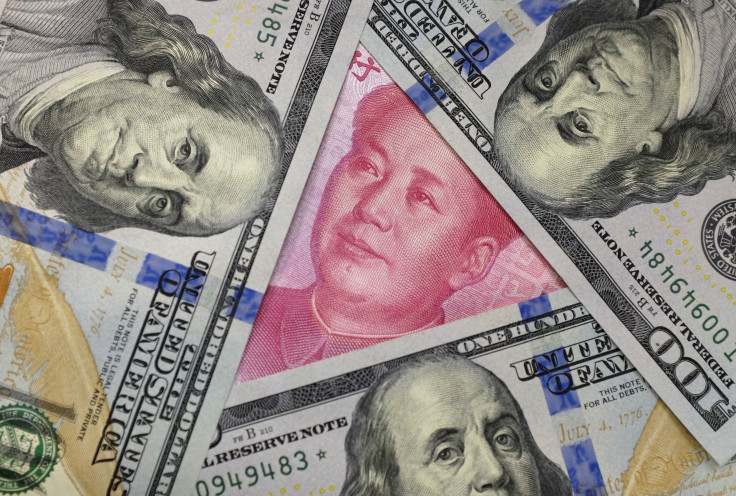China’s Forex Reserves Rise By Over $10B As Capital Outflows Ease And Dollar Weakens

China’s foreign exchange reserves rose for the first time in five months in March, indicating that the People’s Bank of China (PBOC) had eased its intervention in the currency markets. China’s forex reserves — the world’s largest — rose to $3.21 trillion from $3.2 trillion in February.
A Reuters poll had previously forecast a drop in forex reserves to $3.18 trillion.
The unexpected rise in the country’s forex reserves is being attributed to two factors — a weakening of the dollar caused by moderating expectations that the U.S. Federal Reserve would hike rates in April, and recent reassurances by Chinese officials including PBOC Governor Zhou Xiaochuan that capital outflows from the country were showing signs of easing.
In 2015, China’s capital outflows stood at a staggering $1 trillion, while its forex reserves dropped by $513 billion to $3.33 trillion — marking the first annual drop since 1992. Earlier this year, the central bank stepped up controls to ease outflow pressures, before loosening some of the restrictions in February.
“The flip side is if we see the dollar strengthen again later this year in anticipation of a Fed rate hike, capital outflows could return,” Larry Hu, head of China economics at Macquarie Securities Ltd. in Hong Kong, told Bloomberg. “This year will be very choppy.”
At 7:10 a.m. EDT Thursday, the yuan was trading at 6.4678 against the dollar, appreciating from the midpoint rate of 6.4707 set by the PBOC prior to market open. However, since last August, when the PBOC devalued the yuan by over 2 percent, the currency has fallen over 4 percent against the dollar.
Heng Koon-how, a senior investment strategist at Credit Suisse, told South China Morning Post that the Chinese currency is likely to reverse its recent gains in the coming days.
“The existing fundamentals for China remain weak and we will get more confirmation of this in the latest round of macroeconomic numbers from China,” Heng said.
© Copyright IBTimes 2024. All rights reserved.






















